|
|

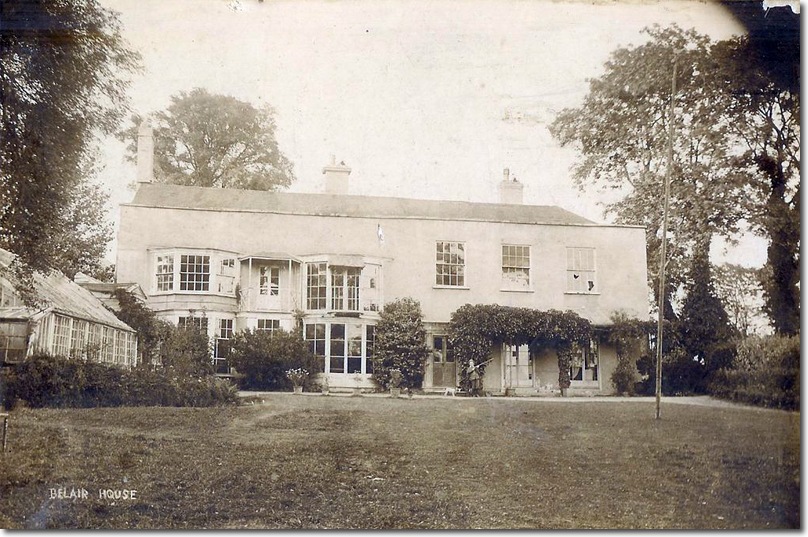
|
|
The house belonged to members of the Elphinstone family who were instrumental in deciding the fate of Napoleon Bonaparte upon his defeat at Waterloo after which he was brought to Plymouth on board the Bellerophon. The house stood on the footprint of the modern day houses of 16, 17, 18 and 19 Elphinstone Road in Pennycross. At the time, Pennycross was outside the limits of Plymouth and of Devonport. The maps below show its location vis a vis the modern road system compared to how it looked in previously. Belair Road at 90 degrees to Elphinstone Road also remembers the name of the old house and would originally have been the old tree lined path up to the house. However, there is no mention of Napoleon on any street names despite this being one of the most consequential addresses in the history of that great man. He was not permitted to set foot in that house lest the Magna Carta give him judicial rights, but his fate was determined for him there nonetheless.
In 1899, the estate was sold by the last Elphinstone family member to live there, Major Cuthbert W Elphinstone-Holloway, to the Devonport Police Authority. It was intended to use it for police accommodation and PC Arthur Prestwood (pictured seated below) certainly lived there. Rapid development was taking place in the area after the construction of the tramway line along Outland Road in that same year of 1899. The house was in a poor state of repair and it was sold to a property syndicate who took possession of the estate and house in October 1906. Belair House was demolished in 1907 and the land was used for housing. You can see on the outside of 16 Elphinstone Road the date that the new housing estate came in to operation in 1910. With many thanks to Tracy Copleston for the image of Belair House and of her great grandfather Arthur Prestwood and the Devonport Police. |
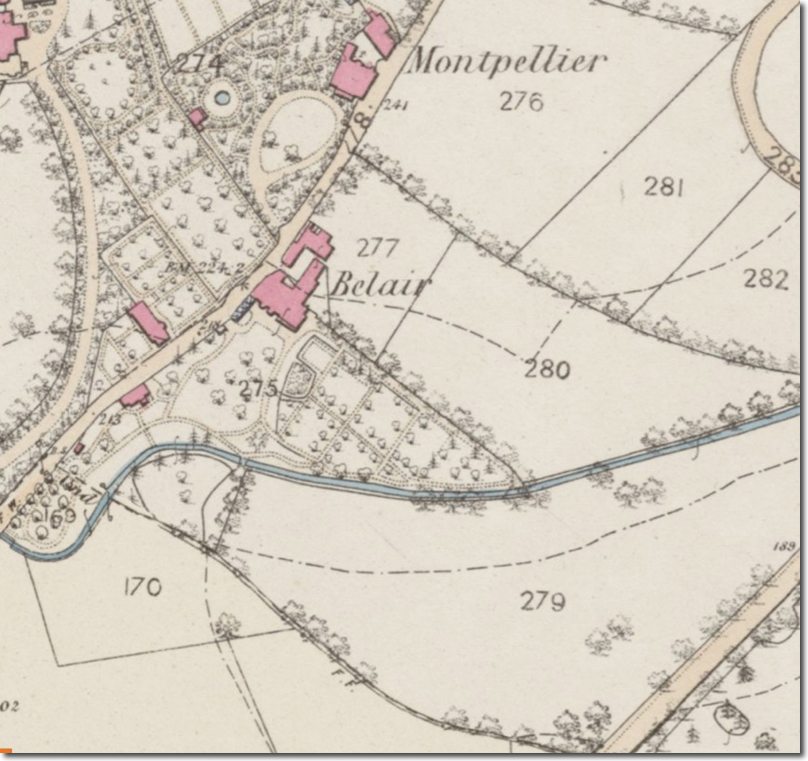 |
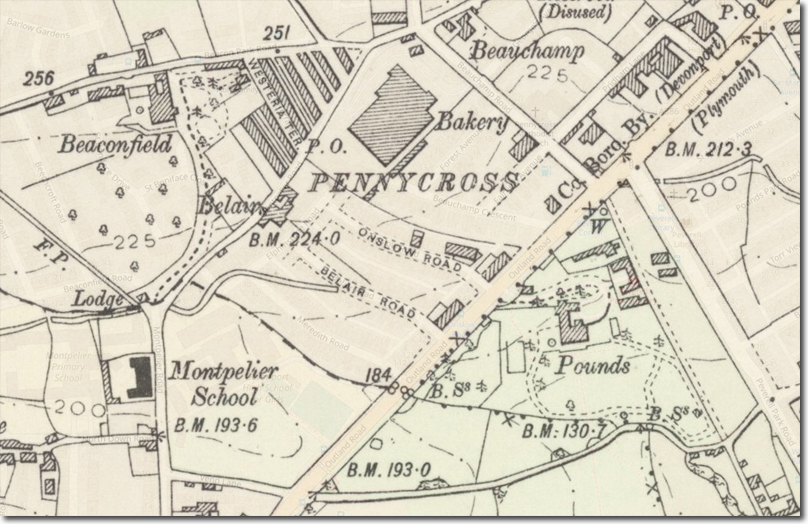 |
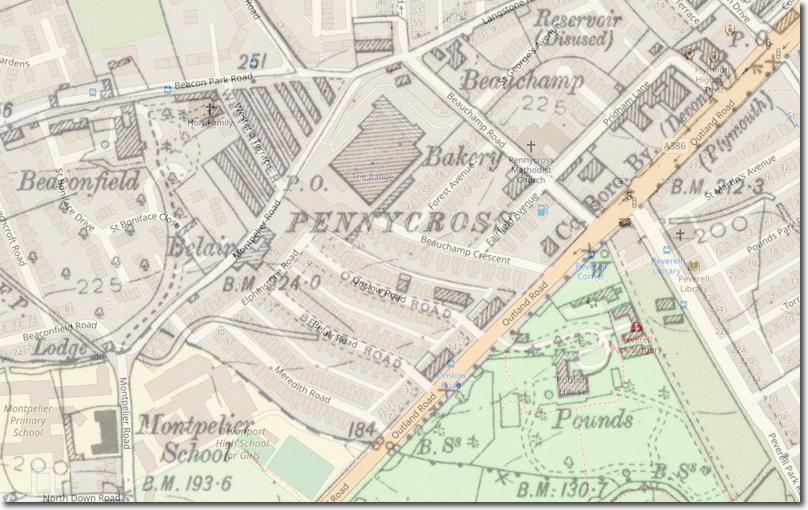 |
 |
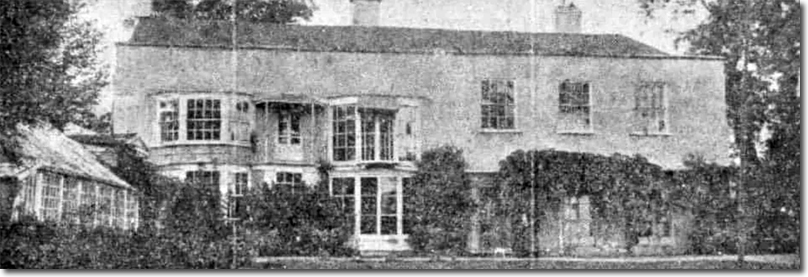 |
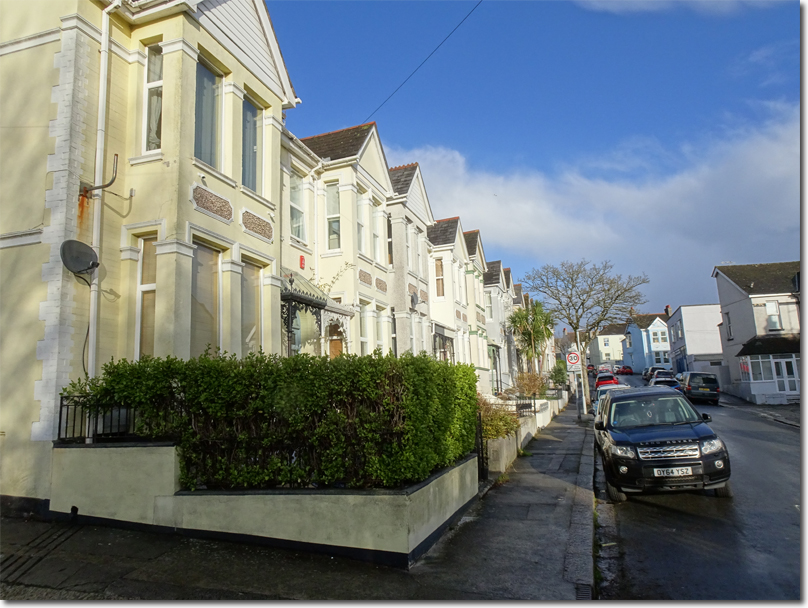 |
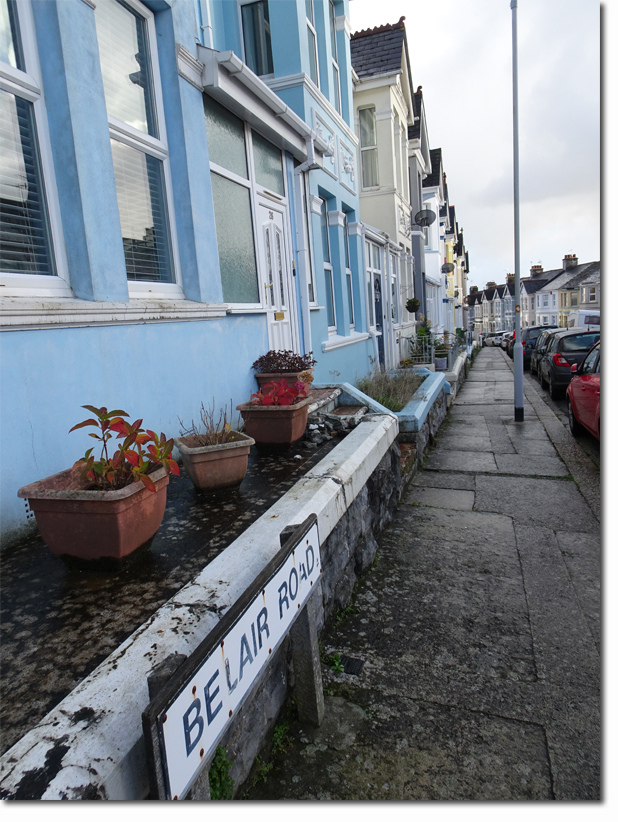 |
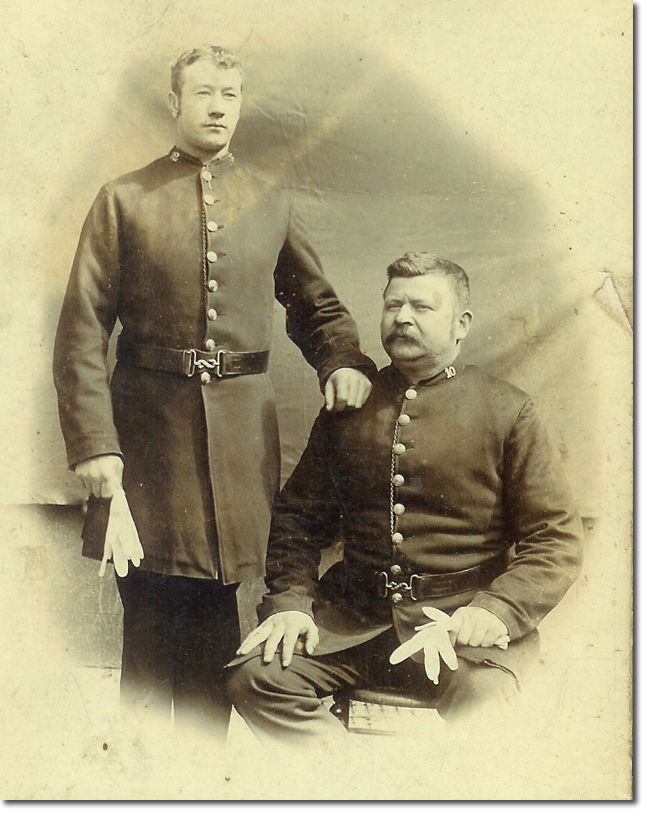
|
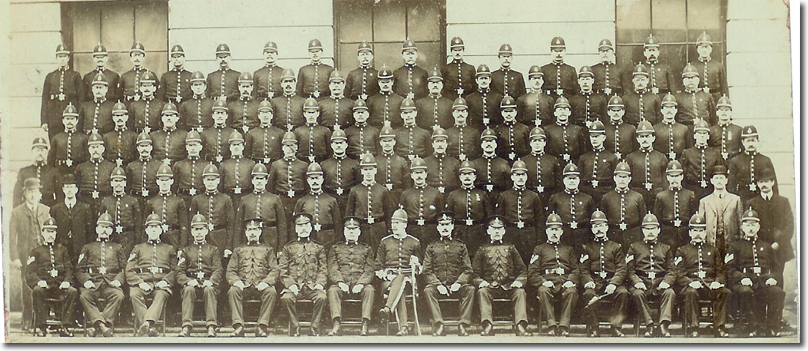
|
Empire in Your Backyard: Plymouth Article
Armed Forces | Art and Culture | Articles | Biographies | Colonies | Discussion | Glossary | Home | Library | Links | Map Room | Sources and Media | Science and Technology | Search | Student Zone | Timelines | TV & Film | Wargames